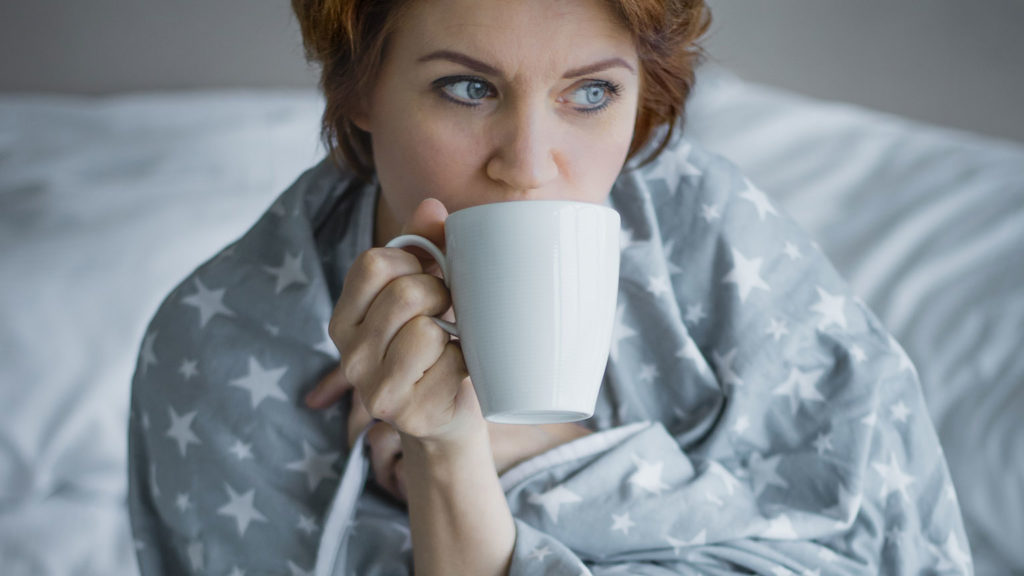
Somniphobia is a chronic and irrational fear of falling asleep and sleep, which is becoming increasingly widespread in modern societies. Sometimes it is also confused with insomnia, but this confusion just makes it harder for a diagnosis and a chance of full recovery. Avoiding sleep can lead to serious disorders such as severely reduced immunity, obesity, neurosis and even depression.
Traumas and nightmares
Somniphobia or hypnophobia is a fear accompanied by severe panic before falling asleep and dreaming. It is a long-lasting and debilitating disease which is increasing rapidly in modern society. Not surprisingly, it has a very negative impact on the proper functioning of the body and contributes to the development of further diseases. So, what is the origin of somniphobia?
Unfortunately, its development can be influenced by many dependent factors, which we are often unaware of. It usually occurs as a result of post-traumatic stress, but it can also develop in people who have experienced a traumatic situation in childhood. Falling asleep can then be associated with a feeling of fear resulting from traumatic experiences. These can be actually life-threatening such as a car accident that occurred during sleep, or fear-inspiring, such as waking up in a dark room in the absence of parents. These phobias (including somniphobia) can be induced. In children, they can develop under the influence of suggestive stories, images or anxiety observed in caregivers (when they have trouble falling asleep).
Another reason is recurrent nightmares and associated sleep paralysis – i.e. sudden freezing of the body and inability to move, combined with a feeling of breathlessness and difficulty breathing. This condition is physiological during sleep. It prevents accidental activity, dangerous in the absence of conscious body control. It happens when the brain waves are not fully “switched” to dreaming when falling asleep or waking up. Such an experience can cause a paralyzing fear of falling asleep. Unpleasant dreams, including a sense of threat or sleepwalking, may also be the cause. Somniphobia, like insomnia, can be caused or exacerbated by chronic stress. It often accompanies affective disorders (e.g. depression) and generalized anxiety disorder (neurosis).
The first symptoms of somniphobia
In the initial stage of the disease, the affected person can function quite normally during the day. The first feeling of anxiety develops with increasing darkness and the onset of sleep. Of course, the type and severity of somniphobia symptoms depend on individual characteristics, however, the most common pre-sleep symptoms are:
- palpitation
- pressure increase
- excessive sweating
- limb pain
- abdominal pain
- dyspnoea
- nausea
- headaches.
Escalating panic and some of these other symptoms may increase as the disease develops and over time prevent you from falling asleep completely. Before this happens, however, we observe a significant decrease in mood, irritability, apathy and pre-depressive states. As a result, ordinary activities such as running a home, caring for children, fulfilling professional duties or maintaining contact with other people becomes increasingly problematic. This situation leads to a vicious circle, causing depression and aggravating the problems falling asleep.
Fight against sleep fears
Somniphobia has very serious consequences, which is why it requires prompt diagnosis and treatment. However, it is not recommended to use long-term pharmacotherapy, which suppresses symptoms and does not eliminate the source of the problem. We should first consult with a psychotherapist who will help identify the cause of the fear and then determine how to change abnormal behaviour and thinking.
However, to help control negative emotions and vegetative reactions, specialists recommend using relaxation and meditation techniques. Weighted blankets (available for children and adults) may also be helpful. These have properties that reduce the level of the stress hormone, regulate the work of the nervous system and reduce the overall feeling of tension and anxiety. Increasing physical activity is highly recommended, as it naturally causes fatigue and makes it easier to fall asleep.
